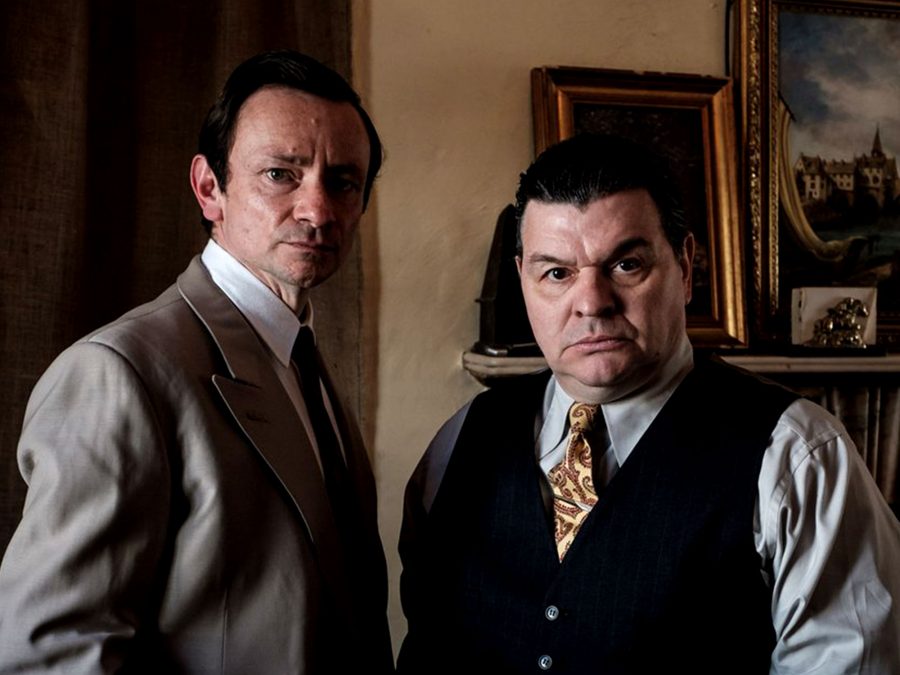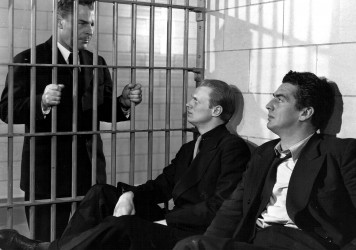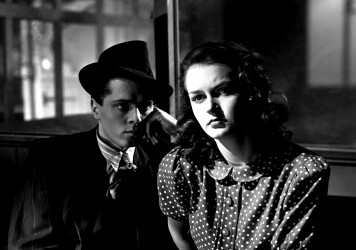Simon Rumley’s postwar gangster flick goes out of its way to deromanticise its deplorable subjects.
The 2018 film Gotti, about the life New York mafia don John Gotti, gained a element of notoriety for two reasons: one, it was objectively awful from a technical/narrative vantage; and two, it showcased an icky love-in between maker and subject, operating as a snivelling apologia for Gotti’s copious transgressions.
Once Upon a Time in London, by the industrious British writer/director Simon Rumley, is a gangster saga with a difference, in that it goes out of its way to deglamourise the lives of its toerag protagonists – chisellers, extorters and degenerates to a man.
At the centre of the story are Leo Gregory’s vaguely reptilian confidence man, Billy Hill, and Terry Stone’s Jack “Spot” Comer, two East End wideboys with rackets extending from illegal gambling concessions at horse racing tracks, to garden variety hold-ups and heists. While spending some time at Her Majesty’ Pleasure, Billy writes to Spot asking to run with him, but egos swiftly clash and the pair soon find themselves at loggerheads over henchman allegiances and territory.
It’s a relentlessly dismal film, whose dimly lit interiors amplify an overall sense of encroaching doom. You’re never asked to sympathise with the characters, whose chronic immorality is paraded like a badge of honour.

Despite Rumley’s admirable remove from the dodgy deeds his characters, the film itself is something of a chore. Every other scene involves some gurning hood entering into a boozer, initially met with faux cordiality before being publicly nobbled and, more often than not, having his face sliced up with a razor.
It’s hard to really care who did what to who – it plays like a dreary soap opera in which these suited-and-booted street toughs switch sides with glee abandon, and their cocksure attempts at toppling the gangster brass seldom go as planned.
Rumley’s fidelity to messy cultural history means that there isn’t really a satisfying arc or single dramatic focal point, so instead we have droning, repetitious scenes of awful men caressing their wads of filthy lucre, or seeing who can express their anger in the most visceral (and audible) way possible.
It’s film who for people who like their true crime fiction with none of the funny, fruity stuff, but is also unafraid to call out these men as self-mythologising charlatans rather than cheeky folk heroes who were good boys really.
Published 19 Apr 2019
Genre-hopping director Simon Rumley turns his hand to the gangster epic.
The intentions are admirable, but the final product is a bit of a repetitious drag.
A classy step up from your garden variety slab of geezer porn.

By David Hayles
In 1947’s Kiss of Death, Richard Widmark plays a murderous Joker-styled sociopath.

This Thatcher-era gangland classic returns to the screens via a newly restored print.

By Tom Graham
Twenty five years on from his death, the novelist famed for his film noir screenplays remains a key influence.